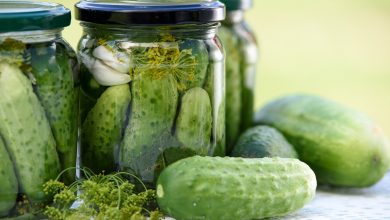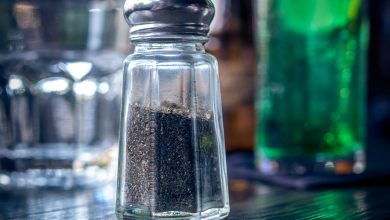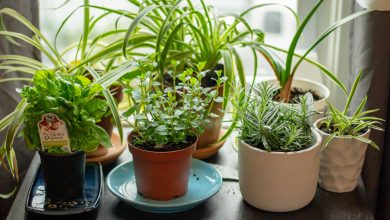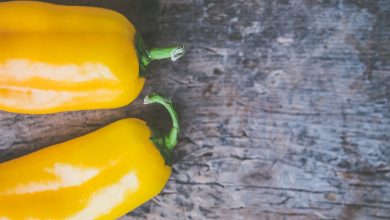How to Properly Store Fruits and Vegetables from Your Garden
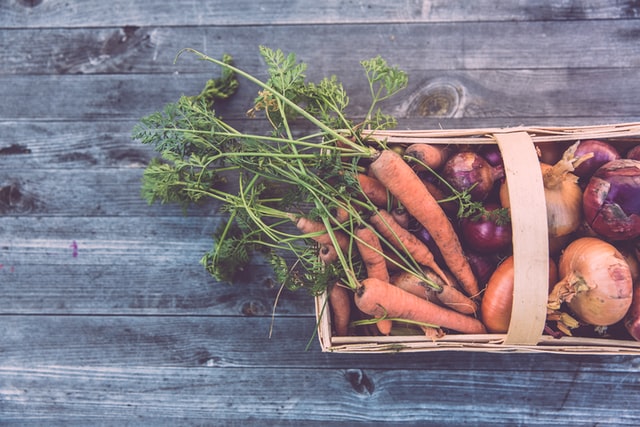
You work hard tending and nourishing your garden, so its fruits and vegetables grow and thrive. You definitely don’t want to see all that hard work go to waste because your items aren’t appropriately stored after harvest.
Just as a lot of different things factor into your gardening methods, such as watering and temperature, the storage of your harvested fruits and vegetables is just as easily impacted by different variances. Today, we’ll take a look at some of the most commonly grown fruits and vegetables in home gardens and how they can be stored to maximize their freshness and life expectancy.
Vegetables
Growing your own vegetables certainly has its appeal. Who doesn’t love being able to gather fresh veggies for meal ingredients, snacks, canning, and more? One of the most common problems experienced by gardeners, however, is how to store an abundance of harvested vegetables that aren’t going to be used right away. Each vegetable variety has its own unique optimal storage requirements. Let’s take a look below at the best methods to store some commonly grown vegetables.
- Artichoke – Artichoke should be stored in the refrigerator following harvest and will keep fresh up to one week.
- Asparagus – Asparagus does best in a crisping drawer in the refrigerator and will keep fresh two to three days.
- Beets – You can store beets up to two weeks in the refrigerator.
- Broccoli – Broccoli should be stored in the refrigerator and will stay fresh for three to five days.
- Brussels Sprouts – Freshly picked brussels sprouts do best when stored in the refrigerator for up to five days.
- Cabbage – Cabbage can be safely stored in the refrigerator for three to four weeks.
- Carrots – Carrots do best stored in the refrigerator and can last up to two weeks.
- Cauliflower – Store cauliflower in the refrigerator for up to one week for optimal freshness.
- Celery – Celery can be stored in the refrigerator while maintaining freshness for up to one week.
- Chard – You can store chard in the crisping drawer for up to ten days for optimal freshness.
- Corn – Keeping corn in its husk and then refrigerating it will allow for freshness to be kept up to two days.
- Cucumbers – Cucumbers are best stored in the refrigerator and can last up to one week.
- Endive – Refrigerating endive wrapped in a damp paper towel or cloth within a plastic bag can help keep it fresh for up to five days.
- Garlic – Garlic does best stored in the pantry and can last for several months.
- Green Beans – Store green beans in the refrigerator for up to five days of freshness.
- Kale – Refrigerating kale leaves in the crisping drawer, wrapped in a damp paper towel or cloth and then placed in a plastic bag, can keep it fresh for up to three weeks.
- Lettuce – Storing lettuce in the refrigerator can help keep it fresh for up to three days.
- Lentils – Lentils do not have a shelf life expiration date and are best stored in an airtight container following drying.
- Onions – Onions can be stored in the refrigerator for up to ten days once sliced or peeled. Whole onions can last much longer if stored in a cool, dry, and dark area of your home.
- Peas – Storing peas in the refrigerator can help them last for up to one week.
- Potatoes – If stored in a cool and dark area of your home, potatoes can last up to three months in storage.
- Radish – Store radishes in a produce bag in the refrigerator to keep them fresh for up to two weeks.
- Spinach – You can keep spinach fresh in the refrigerator for up to one week.
- Squash – Store your freshly harvested summer and yellow squash in your refrigerator for up to five days.
- Zucchini – Zucchini can be stored in the refrigerator for up to one week while still maintaining freshness.

Fruits
Once harvested, the sweet fruits from your garden definitely won’t maintain their fresh ripeness if not appropriately kept. Below are recommended storage options for some of the most commonly homegrown fruits.
- Apples – Apples can be stored up to one month while refrigerated in the crisper drawer.
- Blueberries – Blueberries stay fresh the longest stored in the refrigerator and can last up to two weeks this way.
- Cherries – Fresh cherries can last up to ten days while stored in the refrigerator.
- Figs – Keep figs fresh in the refrigerator for up to two days.
- Grapes – To keep grapes fresh the longest, store them in the refrigerator for up to two weeks.
- Lemons – Whole lemons can be stored in the refrigerator for up to four weeks for optimal freshness.
- Limes – Limes can stay fresh for up to four weeks when stored in the refrigerator.
- Melons – Once ripened, the refrigerator can store melons of different varieties up to seven days.
- Oranges – Refrigerator storage can keep your oranges fresh for up to one month.
- Peaches – Fresh peaches last up to five days when stored in the refrigerator.
- Pears – Pears can retain their freshness for up to one week when stored in the refrigerator.
- Raspberries – Fresh, unwashed raspberries can last up to three days refrigerated.
- Strawberries – Fresh, whole strawberries can retain their freshness for up to one week when stored in the refrigerator.
- Tomatoes – Storing tomatoes in the refrigerator can keep them fresh for up to seven days.
Herbs
Due to the popularity of herb gardens with gardeners, we didn’t want to leave out some of the most popular herbs in our storage recommendations. Take a look below for some ideas on how to keep your newly harvested garden herbs fresh longer.
- Basil – Fresh basil can be stored in the pantry for up to ten days.
- Cilantro – Keep your freshly harvested cilantro in the refrigerator for up to ten days.
- Dill – Dill can be kept in the refrigerator for up to two weeks once harvested.
- Mint – Once picked, mint can keep fresh up to ten days when stored in the refrigerator.
- Oregano – Oregano does best while kept in the refrigerator and can be kept fresh up to two weeks.
- Parsley – Keep freshly picked parsley safely in the refrigerator for up to ten days.
- Thyme – Freshly picked thyme can be stored in the refrigerator for up to 14 days.

Pro Storage Tips
While the storage options listed above can help you quickly and efficiently store your freshly harvested fruits and vegetables, we’ve got a few pro tips that can help extend their lifespans even further.
- Don’t wash any berries until right before you plan to eat them. When berries are washed too soon and then stored, they can ripen and decay too quickly.
- While doing this will lessen the flavor, freezing and drying herbs can allow you to use them for a much more extended period of time. Most herbs can retain their freshness when frozen or dried for many months.
- Greens, such as lettuce and spinach, do well when kept wrapped in a moist paper towel or cloth for storage; this helps preserve their freshness.
- Some fruits and vegetables should never be stored together; this is due to the production of a gas called “ethylene” from fruits. The following ethylene-producing fruits and vegetables are examples of ones that should be stored away from others due to their production of this gas:
- Apricots
- Avocados
- Bananas
- Figs
- Green onion
- Honeydew melon
- Mango
- Passion fruit
- Pears
- Plums
- Potatoes
- Tomatoes
- When possible, use a crisper drawer in your refrigerator for storage. By storing in this area, you can better control the humidity your fruits and vegetables are exposed to.
- Once sliced, diced, chopped, or peeled, all fruits and vegetables should be stored in the refrigerator to preserve safety and freshness.
- When storing vegetables, try to keep them in plastic bags with holes or mesh bags; doing this will allow them to breathe and reduce spoilage.
- It’s recommended that tomatoes are stored stem side down to help prevent too much moisture and early deterioration.
- When storing your fresh carrots, cut off the green tops to reduce condensation.
- If possible, keep your brussels sprouts on the stem until use. Brussels sprouts last longest while held on the stem.
- Onions are sensitive to humidity. When storing onions, be sure the environment is cool and dry to prevent them from decaying too quickly.
- It’s always recommended to keep potatoes stored away from fruits, as this can cause them to sprout and rot quicker.
- Some experts believe the best way to store asparagus in the refrigerator is in a jar with water following a trim of their stalks.
- Celery is best kept wrapped in aluminum foil instead of a towel or plastic wrap. Once diced or cut, celery sticks should be kept in water in the refrigerator.
